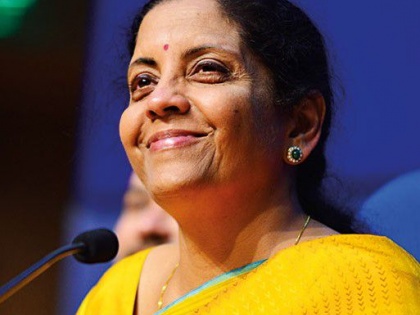Union Budget 2024: Focus on Essential Expenses, No Major Policy Changes Expected
By Lokmat English Desk | Published: January 24, 2024 02:52 PM2024-01-24T14:52:28+5:302024-01-24T14:54:25+5:30
Finance Minister Nirmala Sitharaman will present the Union Budget on Feb. 1, 2024, in the Lok Sabha. With national ...

Union Budget 2024: Focus on Essential Expenses, No Major Policy Changes Expected
Finance Minister Nirmala Sitharaman will present the Union Budget on Feb. 1, 2024, in the Lok Sabha. With national elections approaching, an interim budget is anticipated instead of a full one. An interim budget, presented when there's insufficient time for a full budget or elections are near, serves as a placeholder until the new government takes office and prepares its own budget. It covers the entire fiscal year (April 1, 2024, to March 31, 2025) but focuses primarily on essential expenses to keep the government functioning until a full budget is passed. Overall, an interim budget is a temporary measure to bridge the gap between the outgoing and incoming governments. It ensures the government can continue essential operations while respecting the democratic process and giving the new administration the flexibility to set its own economic agenda.
Here's a breakdown of the key differences between an interim budget and a regular budget:
Interim Budget: Focuses primarily on essential ongoing expenses to keep the government functioning smoothly until the new administration takes over. Avoids major policy changes and new initiatives, leaving those for the new government to decide.
Regular Budget: Covers the entire financial year with a comprehensive overview of government spending, including both essential and discretionary expenses. Introduces new policies, programs, and tax changes as part of the government's overall economic vision.
Limited scope: Focuses on essential spending and avoids major policy changes or new initiatives, as these fall under the purview of the incoming government.
Shorter lifespan: Provisions remain valid only until the new government is formed after the Lok Sabha elections.
No major tax changes: While minor adjustments are possible, significant tax reforms or new schemes are typically deferred to the full budget.
Additionally, unlike a regular budget that includes both past year's financial performance and future projections, the interim budget primarily outlines necessary expenditures until the elections, adhering to Election Commission guidelines to prevent influencing voters. The Railway Budget, incorporated into Union Budgets since 2017, will also be part of the interim budget. Following the presentation on Feb. 1, the budget speech and relevant documents will be available for public viewing on http://www.indiabudget.gov.in/.
Open in app